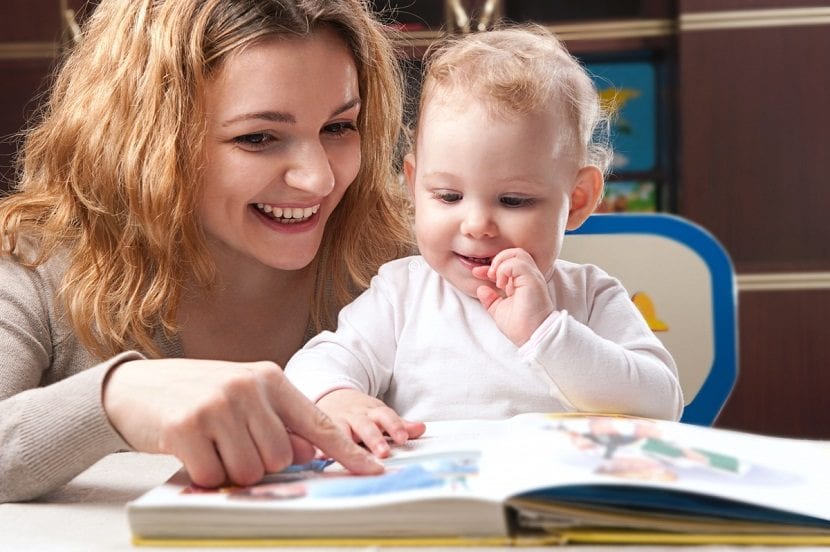
Did you know that your baby's language development begins long before he begins to speak? The baby begins to listen from the womb from the 18th week of pregnancy and can even respond to different noises from the 25th week of gestation ... It is at these times that the baby begins to develop speech and responses to different sounds.
Although it is true that a baby says his first words around 12 months, from before birth he is already learning a large number of sounds and communication skills that are pre-verbal. Pre-verbal communication skills are necessary to define the behaviors the baby will use to intentionally communicate in the future… And they don't just involve words or phrases.
It is necessary to understand pre-verbal skills to know their importance in non-verbal communication. Because communication is both verbal and non-verbal. Communication involves: eye contact, gestures, waiting your turn, making vocalizations, facial expressions, and much more. It is important to help promote the development of these pre-verbal communication skills in babies, but how do you do it?
Help your baby in language development
Language development begins when your baby becomes interested in the sounds of the environment, when he responds to them or tries to locate them. That is, when you begin to respond to different sounds that may be familiar to you. But how can you help your baby in language development? You must take into account what month of life it is in and then apply some strategies.
0-3 months
When the baby is between 0 and 3 months old, he will use crying to communicate with you, since it is his only way of telling you that he is hungry, that something hurts or bothers him ... Little by little he will begin to have eye contact with you, even in periods short of time. You must respond to these visual contacts and also attend to their demands, so they can establish a bond of trust and love with you.
4-6 months
At 4-6 months, your baby will actively try to make sounds, move actively by kicking or waving his arms. Instead of yelling, he can start vocalizing often as a way of communicating with you. He is rehearsing the language and it is very important that you talk to him daily and tell him things, such as what you are doing or what you are going to eat ... You can also read him stories even if you think he is not listening to you ... This will help him learn to listen and acquire new vocabulary . He will also start laughing, and you will enjoy his pretty smile.
7-10 months
When your baby is between 7 and 10 months, he will recognize his name and begin to understand new words, even if they are few. Simple words and basic two-word instructions will be able to understand. Also, you will begin to understand the meaning of 'no'.
10-12 Months
When the baby is between 10 and 12 months old, he will begin to want to learn new words and you will see him say them with his toys, looking at objects or you will even see how he makes sounds imitating others that he has heard before. On these dates he will begin to pronounce his first words. It will be a very tender and sweet moment!
Babies' first year of life is very important for their language development and it is important for parents to stimulate them on a daily basis. Communication by recognizing and responding to the baby's communication signals will help in development and also, to establish a strong bond with parents, essential to promote healthy growth both physically and emotionally. Your words will be the biggest motivation for your baby to have good language development!

